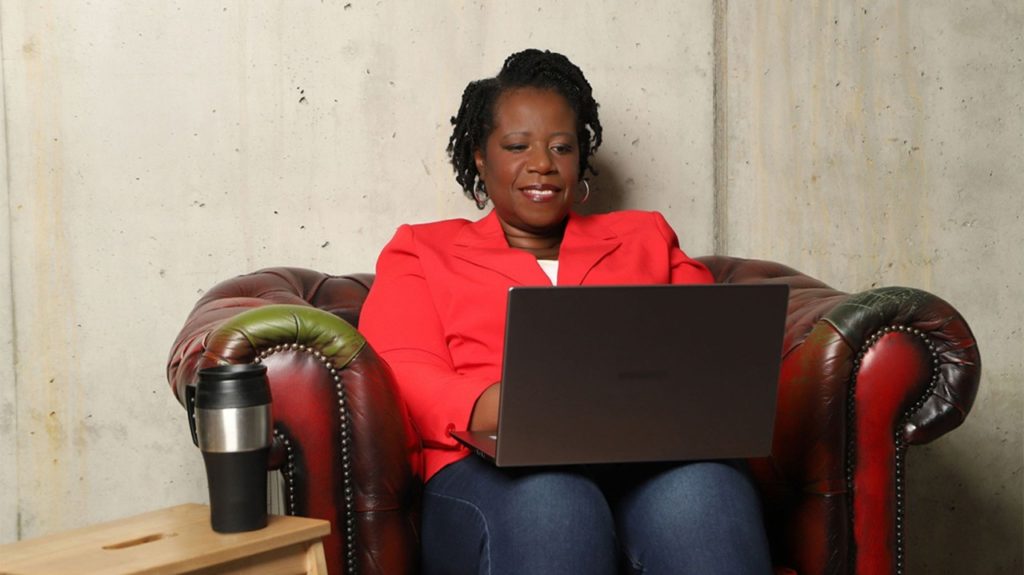As a coaching psychologist (currently working towards chartership), and working as an executive, career, and leadership coach, I coach leaders to overcome the challenges and barriers they face. I coach them to lead with confidence, influence, and impact.
I coach all leaders and specialise in introverted senior leaders (particularly women), and underrepresented groups. I focus on developing the whole leader, and not just the visible aspects of leadership.
The British Psychological Society (BPS) Division of Coaching Psychology defines coaching psychology as:
The scientific study and application of behaviour, cognition and emotion to deepen our understanding of individuals’ and groups’ performance, achievement and wellbeing, and to enhance practice within coaching.
I coach leaders on the underlying psychological factors that influence how they think, feel, and behave. Unlike general coaching, which may focus on skills or performance alone, as a coaching psychologist, I integrate psychology to address deeper behavioural, emotional, and cognitive aspects of leadership.
This approach not only enhances the effectiveness of my coaching clients in their roles, but it also fosters long-term growth and development.
When you experience particular challenges, it can sometimes be difficult to see how you can work your way through them, and you may be wondering whether coaching can help. I often have people ask me how my coaching works because until they have experienced it, it can be difficult for them to understand how transformative it can be.
If you want to gain a better understanding too, the following anonymised case study may help. The scenario I have presented is typical of the issues that I coach my clients on.
Overview
XXXX was newly appointed to a C-suite role. They had been given feedback that their track record and experience were impressive, but they needed to develop their confidence and gravitas to engage with the C-suite.
My client recognised that their communication often hindered them as they were too apologetic. They experienced imposter syndrome and sometimes felt intimidated by other executives, rather than seeing themselves as equal.
Their biggest challenge was their performance in meetings. They found it difficult to assert themselves, and not let other people talk over them or pass off my client's ideas as their own. They also had a team member who was proving challenging.
This was stressful and had knocked their self-confidence. They wanted to increase their self-confidence, be influential, and have a greater presence and impact.
Coaching process
Early on in the coaching process, it became apparent that there were issues from my client’s childhood that were impacting them now. A coach must be able to recognise when previous experiences or trauma are keeping a client stuck and impacting their daily functioning. They need to know the limits of their role and expertise and signpost the client to the appropriate service when necessary.
We identified that whilst there were attachment issues from childhood, it was not severely distressing and did not impact their daily functioning, and that coaching was suitable for them.
Throughout the coaching process, I used a combination of coaching psychology and other models, including Cognitive Behaviour Coaching, Transactional Analysis, Emotional Intelligence, and other aspects of Positive Psychology.
Key insights and developments
My client recognised that the passive, submissive style they had was due to a fear of rejection. Coaching helped them to increase their self-awareness and to recognise how and why they responded the way they did in different situations. Likewise, it helped them to have an awareness of how and why other people responded to my client the way they did.
They identified the self-limiting beliefs that led them to experience imposter syndrome, adopting the ‘child’ position (as described in Transactional Analysis) and behaving passively. This behaviour surfaced when they were in meetings with more senior, dominating personalities. With less dominating personalities and those who were more junior, these issues did not arise.
Although my client had done well to secure the role, deep down, they did not believe they were good enough. They thought that they would get found out.
Outcomes and results
I coached my client to overcome the self-limiting beliefs and identify the factors, situations, and individuals that were triggers. I shared tools and techniques they could use so that self-limiting beliefs and imposter syndrome wouldn’t derail them in meetings.
As a result, having developed self-awareness, and equipped with tools and techniques to overcome self-limiting beliefs, they were able to speak up and assert themselves, and stop using apologetic language.
They had the necessary difficult conversations with their direct report and their relationship improved. Adopting a different approach, resulted in a better output from them.
My client’s self-belief and self-confidence increased and they had greater influence and impact. Their emotional intelligence improved, and stress levels reduced significantly. This also had a positive impact in all areas of their life.
I kept this case study brief to give you an overview of how coaching psychology helped my client in this situation and the positive outcome they achieved, without going into too much detail.
Is there anything that you would like to know about coaching? Let me know if you have any questions.

